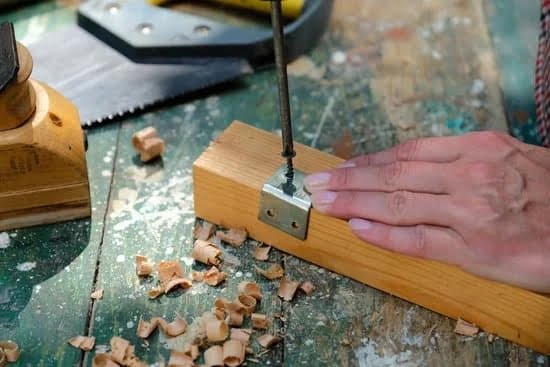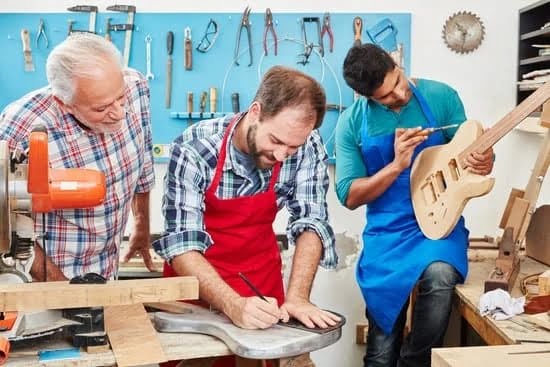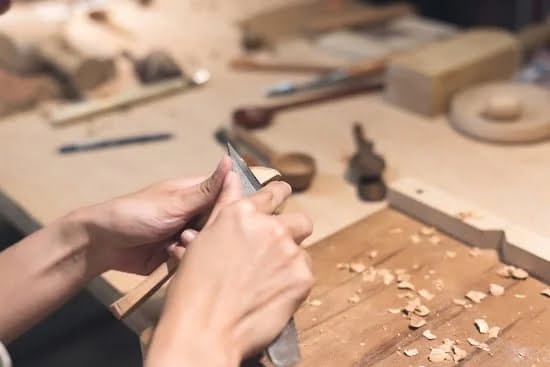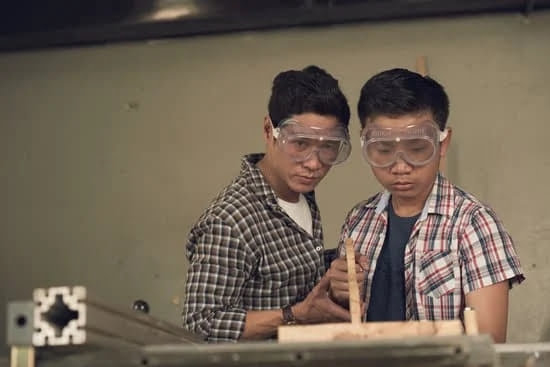Woodworking has been a cherished craft for centuries, and the debate of old hand tools versus new woodworking tools continues to spark curiosity and enthusiasm among enthusiasts. In this article, we will delve into the charm and usefulness of old hand tools in woodworking, exploring the reasons why traditional tools hold a special appeal for many artisans and craftsmen.
From the craftsmanship and durability of traditional woodworking tools to their environmental impact, historical significance, cost-effectiveness, skill requirement, therapeutic benefits, and role in preserving the legacy of woodworking – we will examine every aspect of using old hand tools.
Woodworking purists argue that there is an undeniable allure to utilizing vintage tools over modern ones. These relics from the past symbolize quality craftsmanship and enduring durability that are often unmatched by their contemporary counterparts. Additionally, using old hand tools can also be seen as a sustainable choice with positive environmental implications. The cultural and historical significance of these traditional implements cannot be overlooked either, contributing to the rich heritage of woodworking.
By exploring these various perspectives, we hope to provide insight into why old hand tools continue to hold their appeal in today’s fast-paced world. Whether it’s about embracing tradition, achieving cost-effectiveness, or simply relishing in the therapeutic benefits, there are numerous reasons for woodworkers to opt for old hand tools over new ones.
The Craftsmanship of Old Hand Tools
Old hand tools have been a staple in woodworking for centuries, and for good reason. The craftsmanship of traditional woodworking tools is unparalleled, resulting in quality and durability that surpasses that of modern tools. Woodworkers who appreciate the artistry and functionality of these vintage tools often choose to use them over newer alternatives.
Quality and Durability
One of the main reasons why old hand tools are favored over new woodworking tools is because of their exceptional quality and durability. Crafted with precision and attention to detail, traditional woodworking tools are made to last a lifetime. Unlike modern equivalents that may be mass-produced with lower quality materials, old hand tools were painstakingly crafted by skilled artisans, resulting in unmatched longevity and reliability.
The Timeless Appeal
There is an enduring appeal to the timeless design of old hand tools that continues to attract woodworkers today. The craftsmanship seen in traditional woodworking tools reflects a level of care and dedication that is often lacking in mass-produced modern tools. This commitment to excellence has earned these vintage tools a revered status among woodworkers who appreciate both the practical function and aesthetic beauty of old hand tools.
Heritage and Tradition
Beyond their practical use, old hand tools hold a historical significance that adds to their allure. Woodworkers who value tradition understand the cultural and heritage value of using these traditional woodworking implements. By preserving the legacy of woodworking through the continued use of old hand tools, craftsmen contribute to honoring the artistry and history that has shaped their craft for generations.
The Environmental Impact of Using Old Hand Tools
When considering the environmental impact of using old hand tools versus new woodworking tools, it is important to acknowledge the role that vintage tools can play in contributing to sustainability. By opting for traditional woodworking tools that have stood the test of time, woodworkers can reduce their carbon footprint and minimize their impact on the environment. Here are some reasons why old hand tools are a sustainable choice:
- Durability and Longevity: Old hand tools were built to last, often with high-quality materials such as hardwood and steel. Unlike modern power tools that may have a limited lifespan, vintage hand tools can withstand years of use and can be passed down through generations.
- Reduced Energy Consumption: Vintage hand tools rely on manual labor rather than electricity or batteries. This means that using old woodworking tools consumes less energy, making them a more sustainable choice for woodworkers who are mindful of their environmental impact.
Furthermore, the reclamation and restoration of old hand tools also contribute to sustainability by minimizing waste and promoting a culture of reuse and repurposing. Rather than discarding vintage tools, woodworkers can give these timeless instruments a second life by refurbishing them for continued use.
Ultimately, embracing old hand tools as part of the woodworking process aligns with principles of sustainability by reducing waste, conserving energy, and honoring the craftsmanship of previous generations who relied on these classic instruments for their trade. By incorporating vintage tools into contemporary woodworking practices, artisans can uphold traditional values while making environmentally conscious choices in their craft.
The Historical Significance of Old Hand Tools
Woodworking has a deep-rooted history that is intertwined with the development of civilization. Traditional woodworking tools hold a significant historical significance as they have been used for centuries by skilled craftsmen to create timeless pieces of art.
These old hand tools carry with them the legacy of generations past, each bearing the marks and stories of those who have come before. Here are a few reasons why old hand tools, despite being seemingly outdated, continue to be cherished and valued in the modern age:
- Connection to heritage: Old hand tools provide a tangible link to the craft and trade of woodworking as it was practiced in ancient times. By using these tools, woodworkers can honor the traditions and techniques passed down through generations.
- Cultural preservation: Traditional woodworking tools are not just functional instruments but also cultural artifacts that represent a specific era or region’s craftsmanship. They serve as a reminder of how woodworkers from different cultures created masterpieces using unique techniques and designs.
- Historical context: Each old hand tool carries its own historical context, reflecting the technological advancements, social norms, and economic conditions of the time in which it was made. Understanding this context adds depth to the woodworking experience and allows for a deeper appreciation of the craft.
By recognizing the cultural and heritage value of traditional woodworking tools, woodworkers can gain a deeper understanding of their craft while also contributing to the preservation and celebration of history.
Why old hand tools instead of new woodworking tools: The historical significance of old hand tools lies in their ability to connect us to our past, preserve cultural traditions, and provide insight into the evolution of craftsmanship throughout history.
The Cost-Effectiveness of Old Hand Tools
When it comes to woodworking, many enthusiasts are faced with the decision of whether to invest in old hand tools or opt for new woodworking tools. While the allure of shiny, modern equipment is undeniable, there are compelling reasons why old hand tools may prove to be a more cost-effective choice in the long run.
Longevity and Durability
One of the primary reasons why old hand tools make for a cost-effective investment is their longevity and durability. Traditional woodworking tools were crafted with quality materials and solid construction, making them resilient and long-lasting. Unlike modern power tools that may need frequent maintenance and eventual replacement, well-maintained vintage hand tools can last a lifetime and even be passed down through generations.
Resale Value
Another factor to consider when weighing the cost-effectiveness of old hand tools versus new ones is their potential resale value. Many vintage woodworking tools hold significant value among collectors and enthusiasts. In contrast, modern power tools typically depreciate rapidly as newer models enter the market. This means that investing in old hand tools could potentially result in a return on investment should you ever decide to sell or trade your collection.
Minimal Maintenance Costs
Furthermore, old hand tools often require minimal ongoing maintenance costs compared to their modern counterparts. With simple sharpening, cleaning, and occasional refurbishment, vintage woodworking tools can continue to perform at their best without the need for expensive repairs or replacements. This contrasts sharply with newer woodworking equipment that may necessitate costly repairs or parts replacements over time.
By carefully considering these factors, it becomes evident that opting for old hand tools instead of new woodworking tools can ultimately lead to a more cost-effective investment in the long term. The high quality, resale value, and minimal maintenance costs associated with traditional woodworking tools make them not only an economical choice but also a wise one for those who appreciate both craftsmanship and frugality.
The Skill and Craftsmanship Required to Use Old Hand Tools
The art of using old hand tools in woodworking goes beyond just the act of creating wooden pieces. It involves a deep connection to the craftsmanship and mastery that has been passed down through generations. When asking why old hand tools instead of new woodworking tools, one must consider the skill and artistry required to use traditional tools. The expertise needed to effectively operate these vintage instruments adds an element of reverence and tradition to the woodworking process.
One of the main reasons why old hand tools are favored by many woodworkers is the attention to detail and precision they offer. Unlike modern power tools, traditional woodworking equipment requires a high level of skill and finesse to produce intricate and delicate finishes. Carpenters and craftsmen understand the importance of mastering these techniques as it allows them to create unique and high-quality pieces that are unparalleled by products made with newer machinery.
Moreover, the use of old hand tools is tied to preserving a legacy of craftsmanship that dates back centuries. Woodworking has been an essential part of various cultures for generations, with traditional techniques being passed on from master artisans to apprentices. By using old hand tools, woodworkers pay homage to this rich history while keeping alive the skills and traditions that have shaped their craft throughout time.
| Artistry and Mastery | Traditional Tools |
|---|---|
| Attention to detail | Precision through skill |
| Legacy preservation | Connecting with centuries-old techniques |
| Finesse in craftsmanship | Creating unique, high-quality pieces |
The Therapeutic Benefits of Using Old Hand Tools
One reason why old hand tools are favored for their therapeutic benefits is the tactile experience they provide. The physical sensation of working with well-crafted vintage tools, feeling the grain of the wood, and hearing the sound of hand saws or planes can be incredibly grounding and soothing. This tangible connection to the materials and the process can promote a sense of tranquility and mindfulness that is increasingly rare in our fast-paced, technology-driven world.
Moreover, using old hand tools allows woodworkers to slow down and be fully present in the moment, which can reduce stress and promote mental well-being. Unlike modern power tools that often demand speed and efficiency, vintage tools encourage a more thoughtful approach to woodworking. This deliberate pace not only fosters a greater appreciation for the artistry involved but also provides an opportunity for relaxation and introspection.
| Therapeutic Benefits | Exploration |
|---|---|
| Tactile Experience | The physical sensation of working with well-crafted vintage tools |
| Mindfulness | Allows woodworkers to slow down, be fully present in the moment, reducing stress |
| Relaxation | Fosters greater appreciation for artistry involved, provides an opportunity for relaxation and introspection. |
Embracing Tradition and Preserving the Legacy of Woodworking
In conclusion, the charm and usefulness of old hand tools in woodworking cannot be understated. The craftsmanship, durability, and historical significance of traditional woodworking tools make them a valuable asset for anyone passionate about the craft. Beyond their practicality, using vintage tools can also contribute to sustainability by reducing environmental impact and preserving the cultural heritage of woodworking.
When considering why old hand tools are favored over new woodworking tools, one must take into account the cost-effectiveness of investing in quality vintage tools. While the initial investment may be higher, the longevity and timeless appeal of old hand tools make them a sound long-term investment. Additionally, using traditional woodworking tools requires a certain level of skill and craftsmanship that adds to the artistry and mastery involved in woodworking.
Furthermore, working with old hand tools offers therapeutic benefits that go beyond mere functionality. Many woodworkers find solace in the calming and meditative aspects of using vintage tools, making it not only a practical choice but also a deeply personal one. Ultimately, embracing tradition and honoring the roots of woodworking by using old hand tools is a way to preserve the legacy of this time-honored craft for generations to come.
Frequently Asked Questions
Why Are Old Tools Better Than New Ones?
Old tools are often considered better than new ones because they were typically made with higher-quality materials and craftsmanship. Many old tools were built to last, whereas modern tools may be more disposable.
Why Use Hand Tools for Woodworking?
Hand tools are essential for woodworking because they allow for greater precision and control. With hand tools, woodworkers can make intricate cuts and adjustments that may be more challenging with power tools.
What Are the Reasons of Using Hand Tools in the Workshop?
There are several reasons to use hand tools in the workshop, including the ability to work in areas without access to power, the reduced risk of kickback or other accidents, and the satisfaction of crafting items with one’s own hands. Additionally, using hand tools can lead to a deeper understanding of woodworking techniques and skills.

Hi everyone! I’m a woodworker and blogger, and this is my woodworking blog. In my blog, I share tips and tricks for woodworkers of all skill levels, as well as project ideas that you can try yourself.





